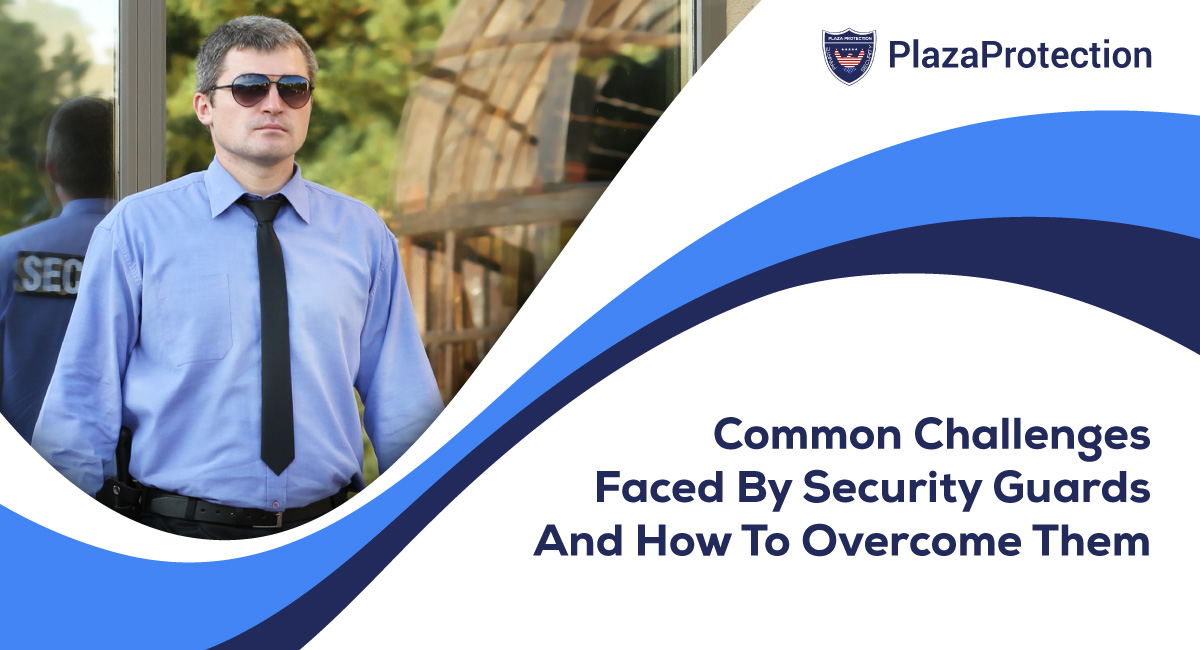Being a security guard isn’t a walk in the park(though it does involve a lot of walking)- it’s a real challenge. They have got a lot on their plate, both physically and mentally. Imagine being always on your toes, ready to act at a moment’s notice. And mentally? They have to stay sharp and prepared for any uncertain situation that arises on site.
And while security threats keep evolving, the role of security guards remains essential as ever. Whether it’s safeguarding valuables, sensitive data or people, they are the frontline defense. But such a huge responsibility is also accompanied by its set of challenges that requires specific security measures and innovative solutions to mitigate them. In this blog, we’ll explore some common challenges faced by security professionals and what they can do to resolve them.
Adapting To Technological Advancements :
Technology is a double edged sword that plays a pivotal role in security. While CCTV cameras, access control systems, and biometric scanners strengthen security, they also bring their fair share of complications. And it’s not just security solutions evolving- security threats are keeping pace too. That’s why it’s crucial for security guards to stay sharp, continuously honing their skills to handle these tech enhancements. Regular training sessions and workshops help bridge the knowledge gap, ensuring our team is always up to speed with the latest tools and tactics.
Managing Information Overload :
Security professionals often find themselves overwhelmed with vast amounts of information from various sources. Filtering through this information to identify genuine threats amidst extra unnecessary data can be challenging. But here’s the deal: smart Analytics and automation tools can be game-changers. They help cut through the clutter, so our security teams can focus on what truly matters. Plus, establishing clear protocols for information sharing and collaboration ensures that critical insights get to the right people at the right time.
Mental Health Strain :
Security professionals often work in high-stress environments, facing potentially dangerous situations, and witnessing distressing events. The constant vigilance required to anticipate and respond to threats can take a toll on mental well-being. To address this challenge, organizations should prioritize mental health support for security personnel. Providing access to counseling services, implementing stress management programs and fostering a supportive work culture where employees feel comfortable seeking help are essential in promoting mental well-being.
Physical Demands :
Security work can be physically demanding, particularly for personnel stationed in challenging environments or required to perform tasks that involve prolonged standing or patrolling. Over time, these physical demands can lead to fatigue, discomfort or even injuries. Implementing ergonomic practices, providing appropriate equipment and gear, and offering regular breaks can help mitigate the physical strain on security professionals. Additionally, encouraging physical fitness through wellness programs can enhance overall health and resilience.
Addressing Insider Threats :
While external threats often take the spotlight, insider threats also pose a significant risk to security. Whether intentional or unintentional, employees or contractors with access to sensitive information can compromise security measures. Implementing access control policies, conducting thorough background checks and fostering a culture of security awareness are essential steps in mitigating insider threats. Regular monitoring of employee activities, and swift response to suspicious behavior further strengthens defense against insider threats.
Balancing Security And Convenience :
Striking the right balance between security and user convenience is always a tricky task, as overly strict measures can hinder productivity and lax security poses risks. Implementing user-friendly authentication methods like multifactor authentication and single sign-on systems strikes a middle ground, ensuring both security and ease of use. It’s vital to involve stakeholders from various departments in decision-making to fully understand their needs. This approach extends to security guard management systems as well, emphasizing usability alongside effectiveness for maintaining safety without causing unnecessary complications.
Navigating Regulatory Compliance :
Compliance with industry regulations and data protection laws adds another layer of complexity to security operations. Failure to comply not only exposes organizations to legal repercussions but also undermines trust and reputation. Security professionals must stay abreast of evolving regulatory requirements and ensure that security measures align with compliance standards. Implementing robust data governance frameworks, conducting regular audits and engaging legal experts for compliance guidance can help navigate regulatory challenges effectively.
Keeping Pace With Evolving Threats :
Security professionals must remain vigilant against constantly evolving threats. Staying updated on emerging trends through intelligence sharing, threat assessments and collaboration with law enforcement agencies helps anticipate and mitigate potential risks effectively.
Building Community Relationship :
Establishing positive relationships with the communities they serve is essential for security professionals, especially in public or community-oriented security roles. Engaging with residents, businesses and local authorities fosters trust, promotes cooperation in crime prevention efforts, and enhances overall safety and security within the community. Regular community outreach programs, neighborhood watch initiatives, and participation in community events contribute to building strong community ties.
In conclusion, while the challenges facing security professionals may seem daunting, they are not insurmountable. By embracing innovation, fostering collaboration, and prioritizing continuous learning, security teams can overcome these challenges and strengthen defenses against emerging threats. A proactive approach, coupled with the right tools and strategies, is key to safeguarding success in an ever-evolving security landscape. At Plaza Protection, we are committed to empowering security professionals with the knowledge and resources they need to thrive in their critical role as protectors of safety and security. Together, we can overcome challenges and build a safer, more secure future.


Leave A Comment